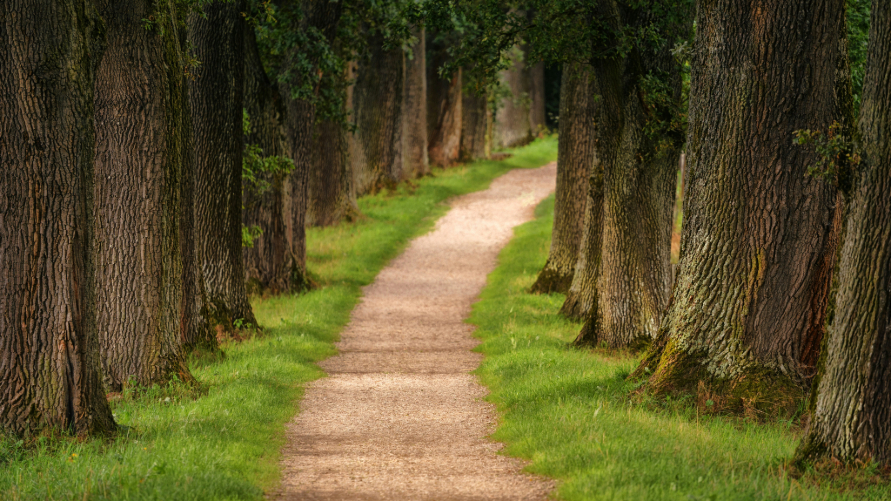My wife used to have a picture of famous and iconic doors that she hung up in our house. One of them was the entry to one of the most famous residences in the world: 10 Downing Street, the home of the British prime minister. Benjamin Disraeli, Winston Churchill, Margaret Thatcher, and Tony Blair have all lived behind that door.
The original door was designed in 1772, made of thick, beautiful black oak with grand Georgian panels. But in 1991, because of a pipe bomb detonated close by, the government decided to replace the wooden door with a bulletproof replica. The door at 10 Downing Street today still looks like black oak, but it’s actually steel. A closer look will reveal that there’s no longer a keyhole and the doorknob is stationary. The door can only be opened, now, from the inside. And the guard who stands inside opens it only to those the prime minister wants to let in.
Doors, or gates, are a big deal in Scripture. In Genesis, after Adam and Eve sinned, angels were placed at the entry gate to the Garden of Eden with flaming swords in their hands to bar reentry. Then, there’s the door to Noah’s ark, the one God had Noah build to save himself and a selection of animals. It had only one door, and God himself shut it once they had all entered.
The temple, too, had only one entryway through which people could enter the temple courtyard. It was covered by a thick curtain, and the first thing someone encountered upon entering was the bronze altar on which sacrifices for sin were offered.
There was also the door into the Holy of Holies where the Ark of the Covenant was. It was covered by a thick curtain of blue, purple, and scarlet. Only the high priest could pass through this door once a year on the Day of Atonement, when he sprinkled the blood of a sacrificed lamb on the mercy seat on top of the Ark of the Covenant. If anyone else ever tried to enter that area—by any other way, for any other reason, at any other time—they were struck dead on the spot. Interestingly, in front of the entrance were carvings of angels standing guard, just like the Garden of Eden.
Time and time again, Scripture tells us there’s only one way to get to God. There’s only one door, and that door is usually associated with an altar of blood.
Which makes Jesus’ claims in John 10 that much more significant.
One of Jesus’ seven “I AM” statements in the book of John is, “I am the door. If anyone enters by me, he will be saved and will go in and out and find pasture” (John 10:9 ESV). “I am the door” is probably the least known of the seven statements, and I’m guessing it doesn’t fill you with inspiration. But the imagery here is beautiful.
There’s no question that the life of a sheep is dangerous. Not only are there thieves who want to steal and kill them, but there are also wild animals who want to devour them. Sheep don’t have any way to protect themselves other than avoiding danger. So shepherds make sure that, at night, all of their sheep are enclosed in a gated area. Once they’re all in, the shepherd shuts the door.
Except that not every sheepfold has a literal door. In ancient Israel (and in many parts of the world today), country sheepfolds are simply comprised of a stone wall with an opening. At night, to keep the sheep from escaping, the shepherd himself would sleep in the entryway. The shepherd was the door.
This is what Jesus has in mind when he says, “I am the door.” Like the shepherd in the country sheepfold, he lays his body down in the doorway between us and all danger. Nothing gets into his pen without his permission.
When Jesus gives us a promise of protection, it doesn’t mean we’re promised a life of ease. We won’t always get the job. We won’t always receive the healing. But we will always get Jesus himself.
Even Jesus’ disciples didn’t experience a life of ease. What he promised them is that he’d use all of it for good in their lives. Jesus told Peter, for example, “Satan has desired to sift you like wheat” (Luke 22:31). In other words, he has asked for permission to enter this pen and mess with him. But instead of saying he forbade it, Jesus says, “I have prayed for you, that your faith might not fail” (Luke 22:32).
If we went through life with this confidence—that God is our protector, that he plans to use everything that happens for our good—we’d live drastically different lives. We have an almighty, ever-watchful, omni-competent Shepherd standing at the door of our sheep pen who will not let anything enter that he doesn’t promise to use for good. We have a Shepherd who opens the way to God by placing himself on the altar of blood.
People will hurt us. People will disappoint us. We will fail. But we don’t have to be overwhelmed or taken out by life. We can know that our Shepherd is still laying down as the door to our sheepfold, protecting us, interceding for us, and reminding us of his presence.


